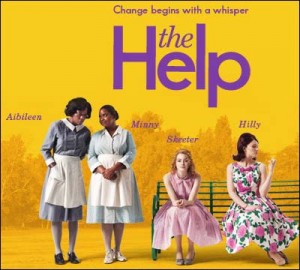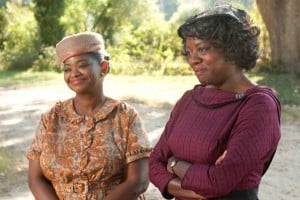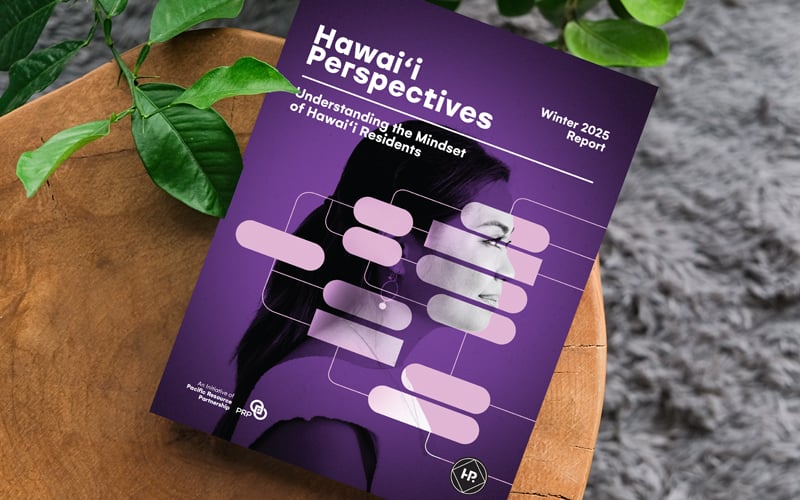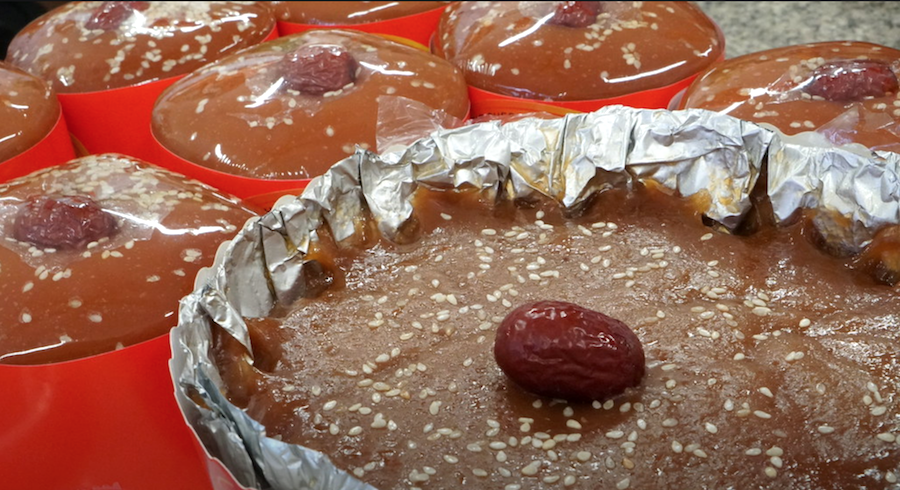‘The Help’ tells a scattered story

 Set in Jackson, Miss. in the 1960s, “The Help” is a story of white families and the black women hired as their maids. Eugenia “Skeeter” Phelan (Emma Stone) returns home to Jackson after earning her college degree, with dreams of becoming a writer. She lands a job at the local newspaper writing a cleaning advice column, but aspires to be more than an anonymous columnist. After hearing that Constatine, the maid who raised her from infancy, suddenly moved to Chicago while she was away, she becomes suspicious of the circumstances of Constantine’s departure and decides to write a book about the truths of the distinction between the racial classes with the help of two of the more outspoken maids in the town, Aibileen (Viola Davis) and Minny (Octavia Spencer).
Set in Jackson, Miss. in the 1960s, “The Help” is a story of white families and the black women hired as their maids. Eugenia “Skeeter” Phelan (Emma Stone) returns home to Jackson after earning her college degree, with dreams of becoming a writer. She lands a job at the local newspaper writing a cleaning advice column, but aspires to be more than an anonymous columnist. After hearing that Constatine, the maid who raised her from infancy, suddenly moved to Chicago while she was away, she becomes suspicious of the circumstances of Constantine’s departure and decides to write a book about the truths of the distinction between the racial classes with the help of two of the more outspoken maids in the town, Aibileen (Viola Davis) and Minny (Octavia Spencer).
The film begins with a powerful statement, with Aibileen telling the audience that black women in Jackson are raising the white children. That boldness really garnered my attention, but unfortunately the statement is never supported in depth, and the film meanders with too many unnecessary subplots. For instance, a romantic interest for Skeeter is introduced, but their romance is unnecessary and unbelievable. A woman of Skeeter’s strength and intelligence would never be in a relationship with this person after what happens on their first date. There’s also an abusive husband subplot that’s barely addressed and never integral. Then there’s a shooting of an important civil rights person that’s just touched upon. It feels as if these dramatic plotlines are included to add weight to the story, but without proper execution, the film merely turns into ’60s Southern version of “Horrible Bosses.”
But what’s worse than the scattered screenplay is that in a film where black characters are supposedly triumphant for being able to tell their side of the story, there’s only one character who ultimately benefits from the experience, and it’s not one of them. This is typical of Hollywood in most race-based movies, and it’s getting old. Hollywood needs to allow minorities to tell their own stories rather than have white writers and directors tell their stories for them.
 Not having read the bestselling novel the film is based on, I can’t determine whether the faults are in the source material or in the translation from book to film. There is no way a two-hour movie can include all of a novel’s nuances, but that’s where the screenwriter plays an important role in adapting the original material. Key points must be selected and others left out in order to tell a compelling and complete story in the allotted time.
Not having read the bestselling novel the film is based on, I can’t determine whether the faults are in the source material or in the translation from book to film. There is no way a two-hour movie can include all of a novel’s nuances, but that’s where the screenwriter plays an important role in adapting the original material. Key points must be selected and others left out in order to tell a compelling and complete story in the allotted time.
Despite the problems with the screenplay, there are some fantastic performances. Stone (“Crazy Stupid Love”) is quickly becoming a star and delivers a believable leading performance. Bryce Dallas Howard is also excellent as Hilly Holbrook, ringleader of the white housewives who disrespect their maids and regard them as lower-class citizens. But Davis and Spencer give the standout performances as the black maids who first share their stories with Skeeter. Displaying courage, fear and confidence, these two actresses essentially carry the film. I wish they were given even more screen time.
But even with strong acting, “The Help” suffers from a spotty screenplay. And despite being well meaning, it ultimately doesn’t get the story right.
“The Help”, 137 minutes, is rated PG-13 and is in theatres now.









